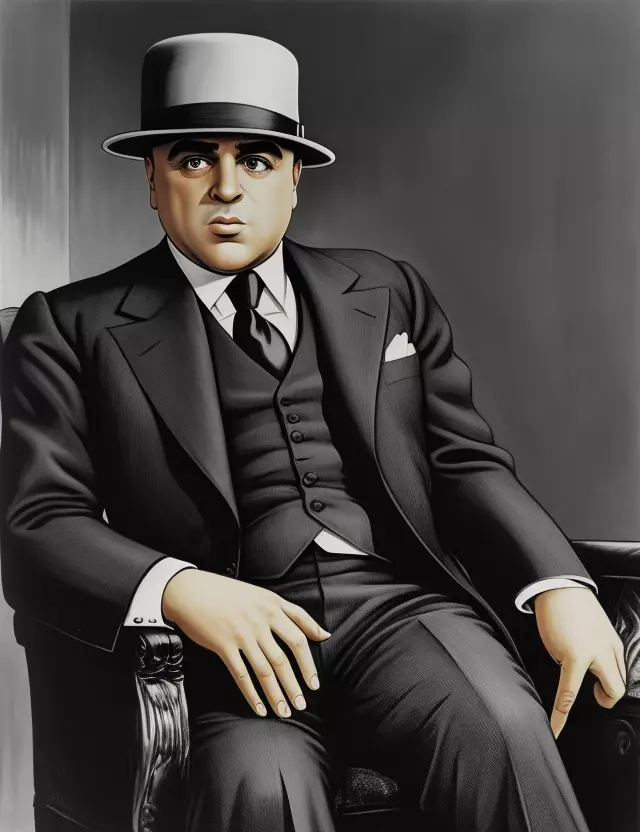The Arrest of Al Capone: A Glimpse into the Infamous Gangster's Early Years
A Pivotal Moment in the Life of the Notorious Mobster

On October 23, 1925, a significant event occurred in the life of the notorious American gangster, Al Capone. He was arrested in Philadelphia for carrying a concealed weapon. While this incident marked a relatively early chapter in Capone's criminal career, it foreshadowed his rise to infamy as one of the most powerful and feared figures in the world of organized crime.
Al Capone's Early Years
Al Capone was born in Brooklyn, New York, in 1899. He came from a working-class Italian-American family and grew up in a neighborhood where criminal activities were not uncommon.
Prohibition Era
The 1920s marked the era of Prohibition in the United States when the production, sale, and transportation of alcoholic beverages were illegal. This period created opportunities for organized crime, and Capone seized the chance to rise through the criminal ranks.
Arrival in Chicago
Capone relocated to Chicago, where he became associated with Johnny Torrio, a prominent figure in the Chicago Outfit, a powerful criminal organization. Under Torrio's guidance, Capone quickly became a key figure in the city's underworld.
Arrest in Philadelphia
The incident on October 23, 1925, in Philadelphia was a turning point for Capone. He was arrested for carrying a concealed weapon, a charge that led to a brief prison sentence. It was during this time that Capone's reputation began to grow.
Rise to Power
Upon his release, Capone continued his ascent within the Chicago Outfit. He became involved in various criminal activities, including bootlegging, gambling, and prostitution. His ruthlessness and willingness to use violence to maintain control earned him a fearsome reputation.
Prohibition's End and Downfall
The end of Prohibition in 1933 marked a decline in Capone's power, as his criminal empire was heavily reliant on illegal alcohol sales. Additionally, he faced increasing scrutiny from law enforcement.
Imprisonment and Later Life
In 1931, Capone was convicted of tax evasion and sentenced to prison. He spent several years behind bars and, upon release, retired to Florida. His health deteriorated due to syphilis, and he died in 1947.
Legacy
Al Capone remains an iconic figure in the history of organized crime. His life and criminal exploits have been the subject of numerous books, films, and documentaries, contributing to his enduring notoriety.
The arrest of Al Capone in Philadelphia on October 23, 1925, offers a glimpse into the early years of the man who would become one of America's most infamous gangsters. While this arrest was just a small chapter in his life, it foreshadowed the criminal empire he would build during the Prohibition era and the lasting impact he would have on the world of organized crime.



